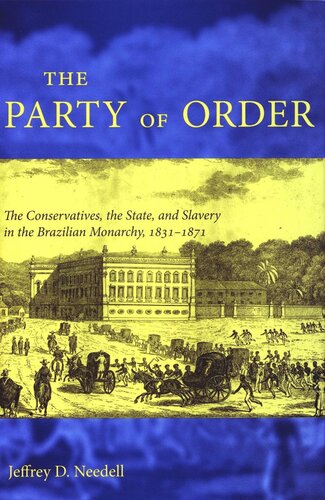

Most ebook files are in PDF format, so you can easily read them using various software such as Foxit Reader or directly on the Google Chrome browser.
Some ebook files are released by publishers in other formats such as .awz, .mobi, .epub, .fb2, etc. You may need to install specific software to read these formats on mobile/PC, such as Calibre.
Please read the tutorial at this link: https://ebookbell.com/faq
We offer FREE conversion to the popular formats you request; however, this may take some time. Therefore, right after payment, please email us, and we will try to provide the service as quickly as possible.
For some exceptional file formats or broken links (if any), please refrain from opening any disputes. Instead, email us first, and we will try to assist within a maximum of 6 hours.
EbookBell Team

4.4
102 reviewsThis study analyzes Brazil's monarchy, which adapted European ideas and practices to a creole plantation society that was traditionally based on African slavery. It focuses upon the Conservatives, who represented the sugar and coffee elites in reconstructing the new nation's state as a strong, representative, constitutional monarchy in troubled times. After the monarch himself assumed power, however, his views undercut parliamentary and party government, which were also sapped by regional differences and the pressure for state patronage. Increasingly, the emperor and his cabinets used state patronage and state authority to dominate politics. When the emperor decided upon gradualist abolition, Conservatives were unable to defeat it, despite its unconstitutional origin and imposition and its threat to the society and economy they represented. The legacy of an authoritarian, centralized political culture survived; that of a representative, constitutional regime did not. This book dramatically revises notions of the monarchy in terms of the social and ideological origins and nature of the Brazilian state, the role of the monarch, and the range and complexity of elite politics in the era.